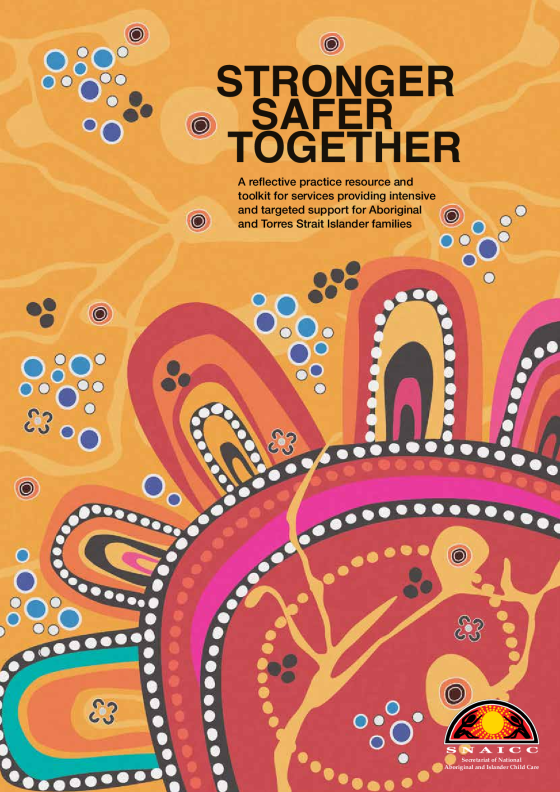About this resource
Stronger Safer Together practice resource developed by the Secretariat of National Aboriginal and Islander Child Care (SNAICC) - National Voice for our Children
Stronger Safer Together, is a reflective practice resource and toolkit for services providing intensive and targeted support for Aboriginal and Torres Strait Islander families.
The resource is primarily designed to support good practice learning and reflection for both Aboriginal and Torres Strait Islander and non-Indigenous agencies providing intensive or targeted family support services to Aboriginal and Torres Strait Islander families with multiple and complex needs.
The resource was informed by research published in the SNAICC 2015 publication, Moving to Prevention research report: Intensive family support services for Aboriginal and Torres Strait Islander children (the Moving to Prevention Report) developed by Griffith University.
The resource was also informed by the expert knowledge and experience of a number of Aboriginal and Torres Strait Islander agencies offering intensive support for families.
Seven practice focus areas have been identified and are based on common elements that define the essence of effective practice to provide intensive support to Aboriginal and Torres Strait Islander families.
The seven practice focus areas are:
- Working differently with Aboriginal and Torres Strait Islander families.
- Building trusting relationships and partnerships with families.
- Identifying the needs of children and their families.
- Providing an appropriate mix of practical, therapeutic, educational and advocacy supports.
- Including families in case planning and decision making.
- Working effectively with statutory child protection agencies.
- Ensuring worker safety, self-care, boundaries and supervision.
The resource has been designed to be flexible and suit the needs of different services and workers. It can be used in a number of suggested ways, including as:
- a guide for reflection and discussion amongst family support staff teams in professional development sessions
- a toolkit of ideas for good practice for individual practitioners to explore and draw upon, and
- an information source to inform the development of locally adapted practice resources and service manuals.
The resource also includes a supplementary learning chapter on using child and family assessment tools. This section classifies tools into four key groups and provides examples of different types of tools that have been developed either by or in consultation with Aboriginal and Torres Strait Islander organisations and researchers.
